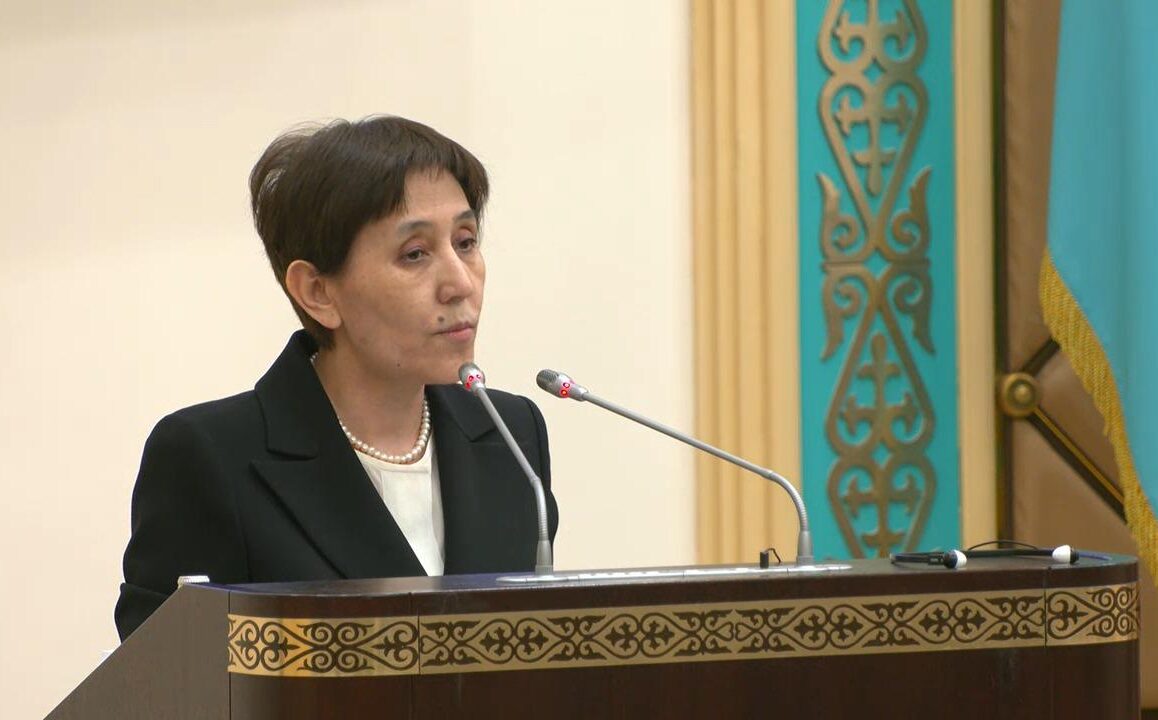ASTANA – The Kazakh government is considering a new Social Code, projecting a 51 percent basic pension growth in four years, reported the ministry’s press service.

Kazakh Minister of Labor and Social Protection Tamara Duisenova. Photo credit: gov.kz.
Minister of Labor and Social Protection Tamara Duisenova presented a new draft on Feb. 7 to the Senate, an upper chamber of the Kazakh Parliament.
The Social Code embraces the new social policy, an essential aspect of the reforms announced by President Kassym-Jomart Tokayev. Duisenova reiterated that the ministry studied the European Union Social Code when developing the draft document but also considered the specifics of Kazakhstan.
“Kazakhstan is undertaking measures to support pensioners in the transition period to a funded pension system,” she said. The annual growth of the average basic pension is set to reach 13 percent, affecting two million Kazakh pensioners.
From 2023 to 2027, the minimum basic state pension is expected to increase from 54 to 70 percent of the subsistence minimum and the maximum from 100 to 120 percent.
This year, the monthly calculation index (MCI) equals 3,450 tenge ($7,64). Since the beginning of this year, Kazakhstan plans to increase the maximum income for calculating a solidary pension for all new pensioners from 46 to 55 MCI ($351 to $420).
Lyazzat Kaltayeva, the head of the Shyrak Association, an NGO supporting the rights of people with disabilities, underlined the need to correct the term “disability” in the Social Code.
Kazakhstan’s 2005 law on social protection of persons with disabilities, which will cease to be in effect once the Social Code is adopted, defines a person with a disability as a “person who has a health disorder, with an enduring disorder of the functions of the body caused by diseases, injuries, which leads to a limitation of vital activity.”
Kaltayeva, a prominent human rights activist, said this definition does not comply with the principles of the United Nations Convention on the Rights of Persons with Disabilities (CRPD) ratified by Kazakhstan in February 2015.
She emphasized the need to derive a clear concept of discrimination based on disability in accordance with CRPD.
“Law enforcement practice shows that almost all lawsuits on discrimination based on disability are lost because there is no clear concept. International practice shows that almost all countries develop this concept additionally,” said Kaltayeva, as quoted by Vremya (Time) newspaper.
The rights of people with disabilities and other vulnerable groups of the population will be the focus of the work of an ombudsperson, a position Kazakhstan has introduced last month. This was an initiative voiced by President Tokayev in his state-of-the-nation address in September.
The draft Social Code also envisions a digital family map, which will help identify families in challenging life situations to provide timely social assistance without waiting for citizens to appeal. Its provisions include measures to prevent social risks and overcome their consequences.
According to Duisenova, only certified specialists who have passed an independent qualification assessment will be allowed to do social work.
Other new features of the Social Code are aimed at increasing the availability of social services for people with disabilities, especially in rural areas, and improving the social protection of employed citizens by introducing labor market liberalization measures, work skills improvement, and creating digital employment centers.

